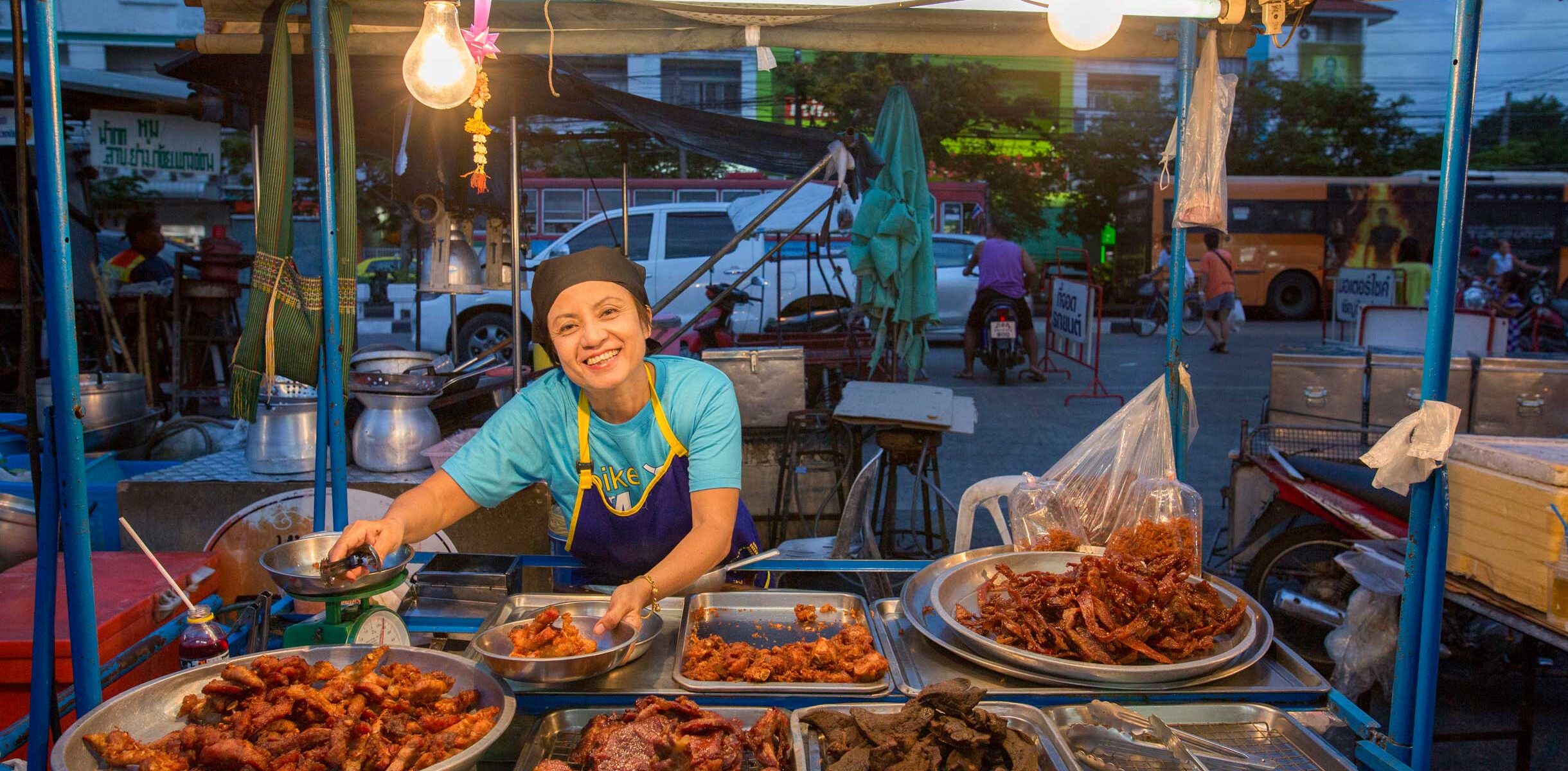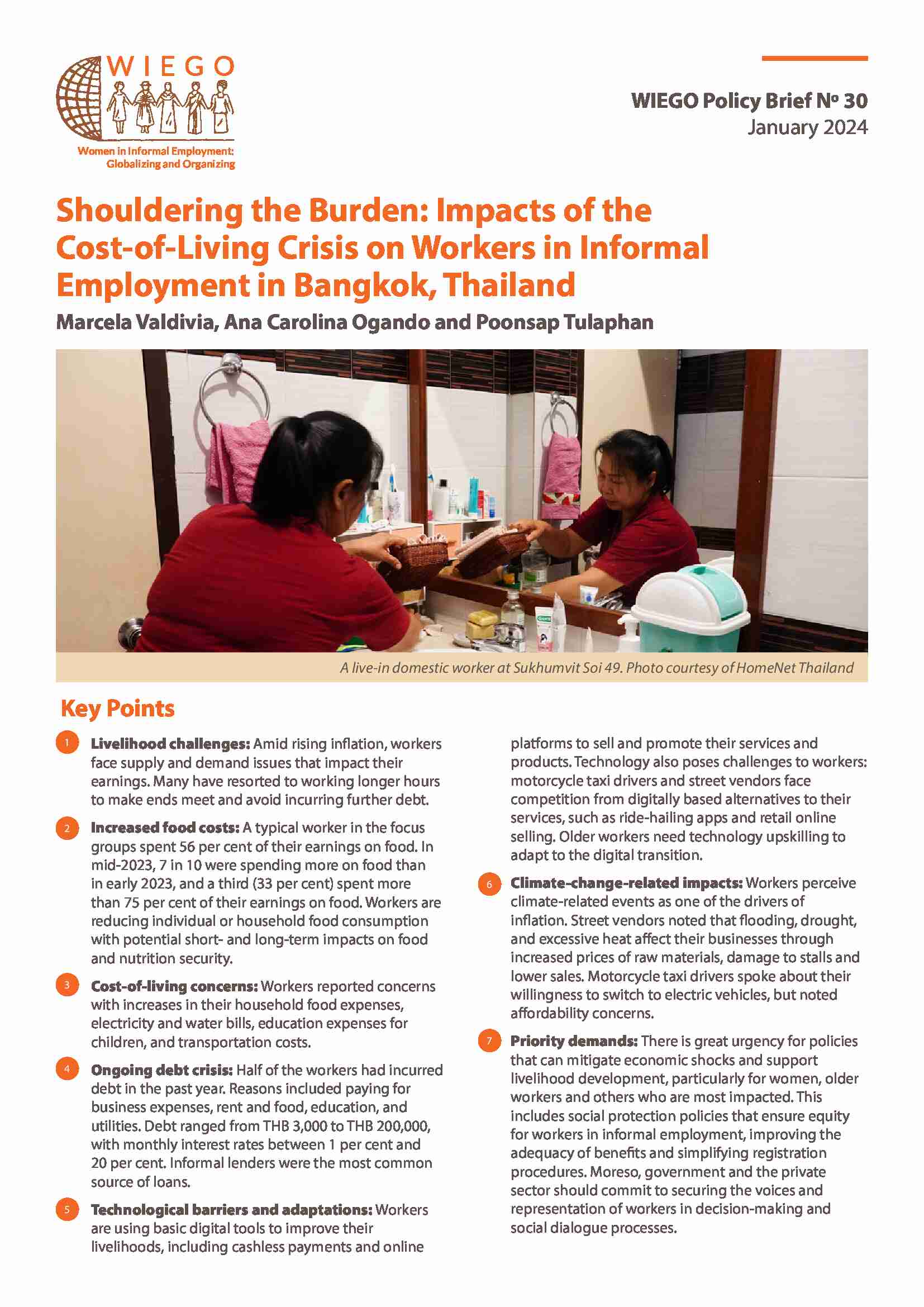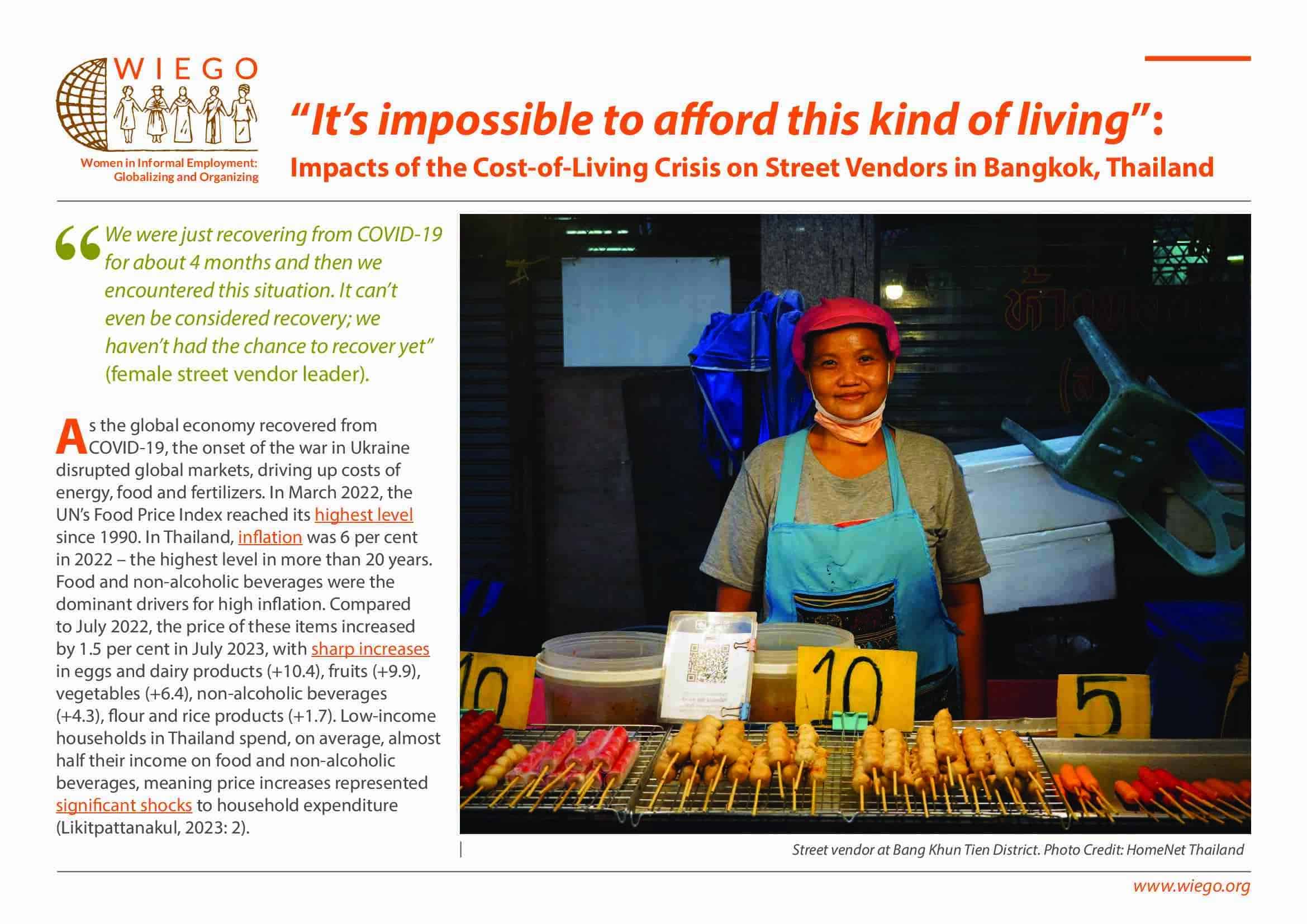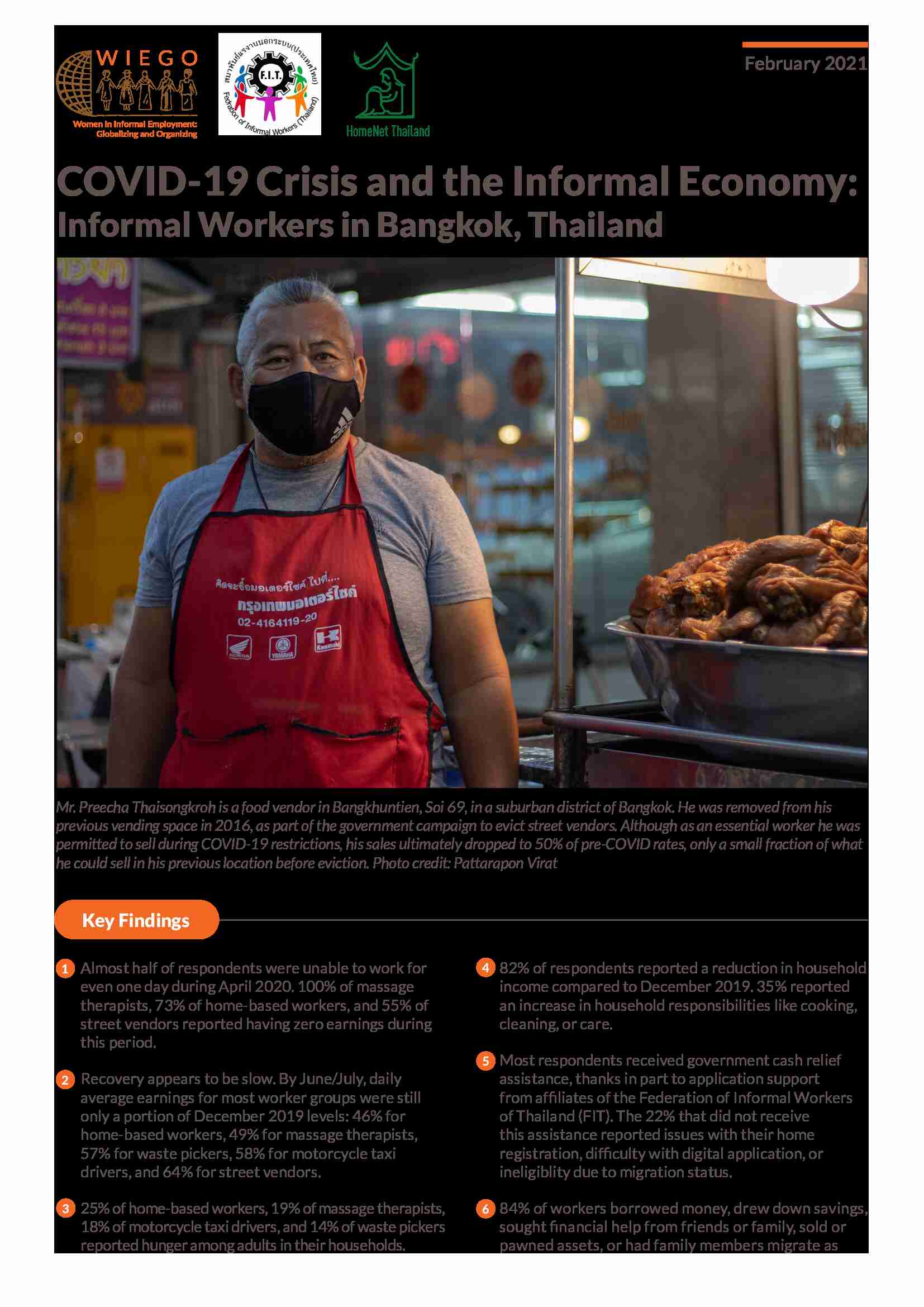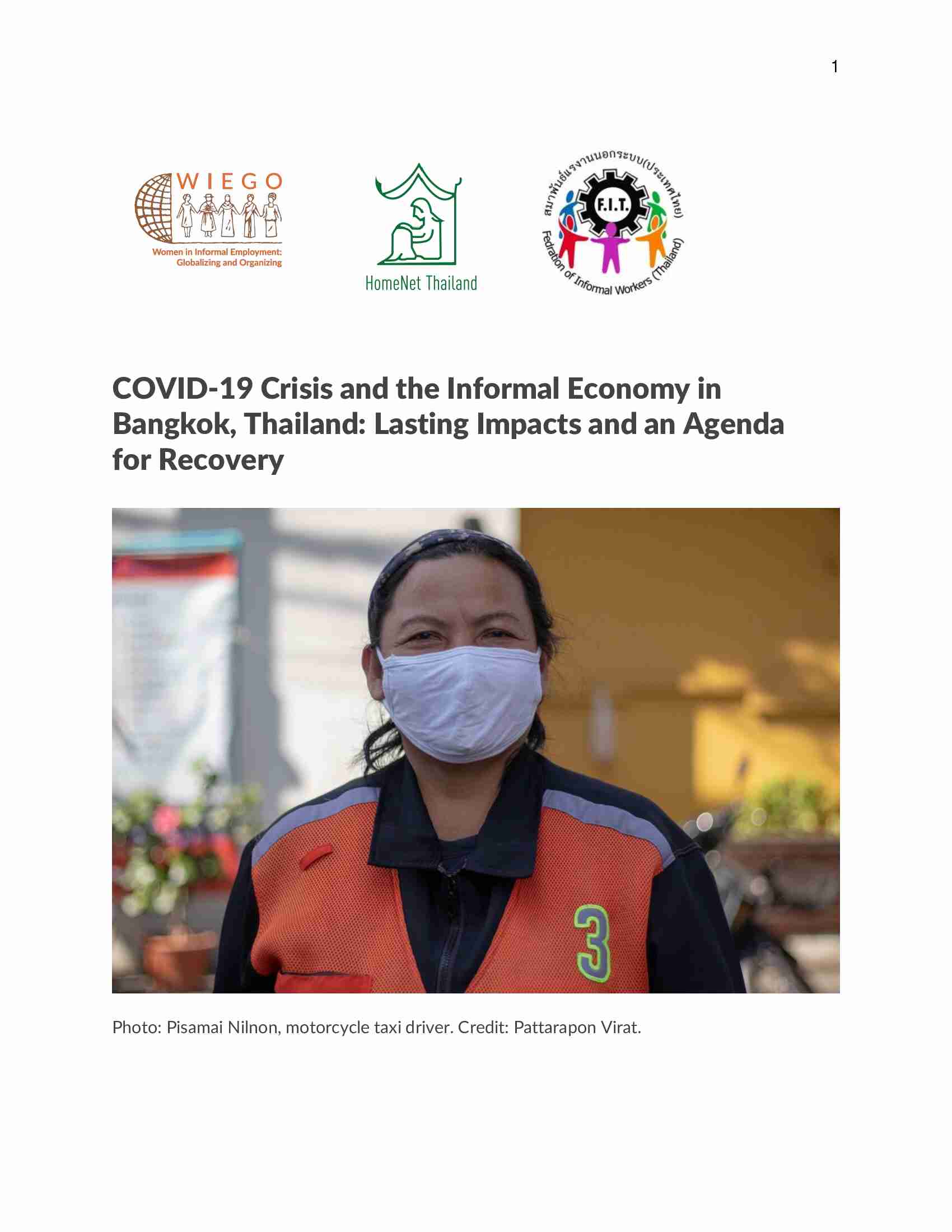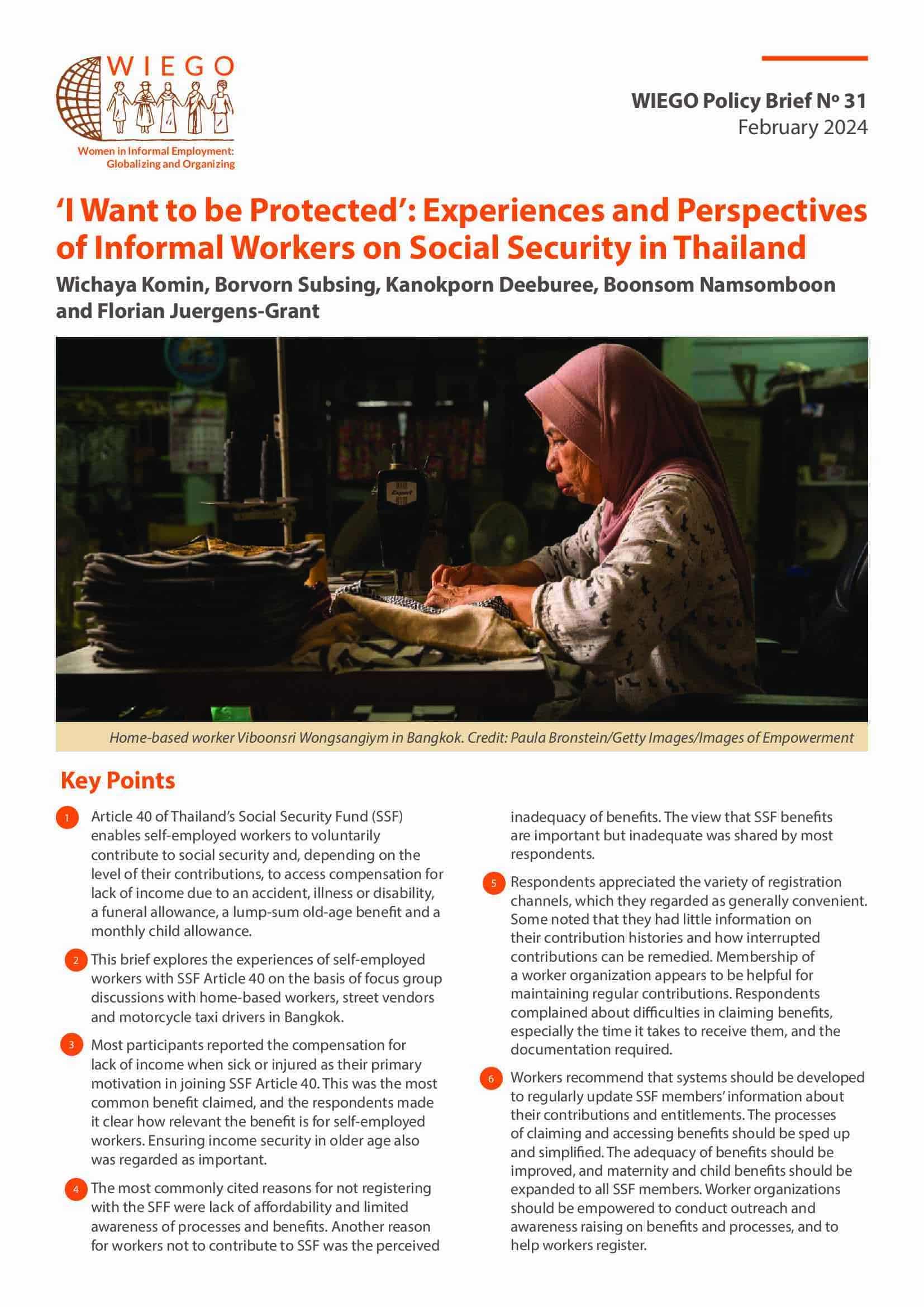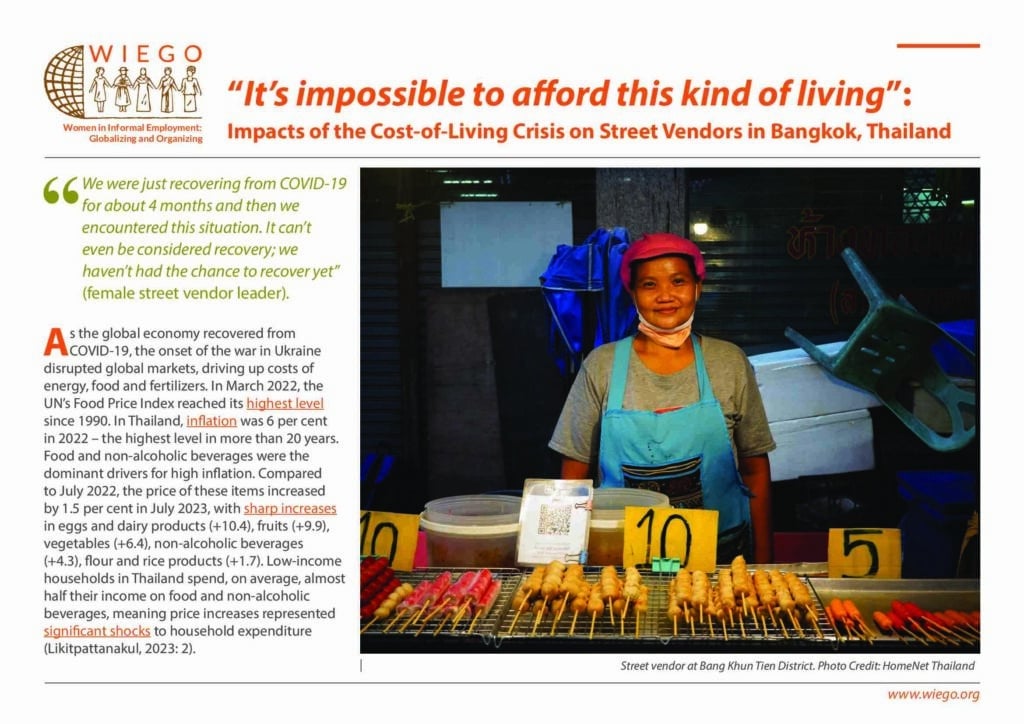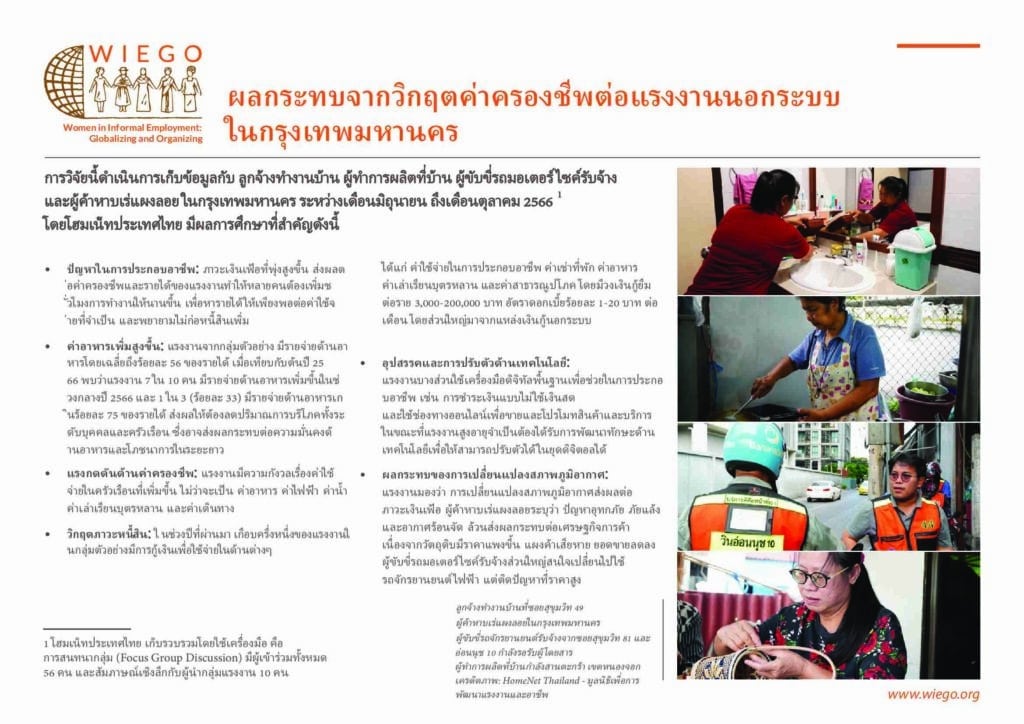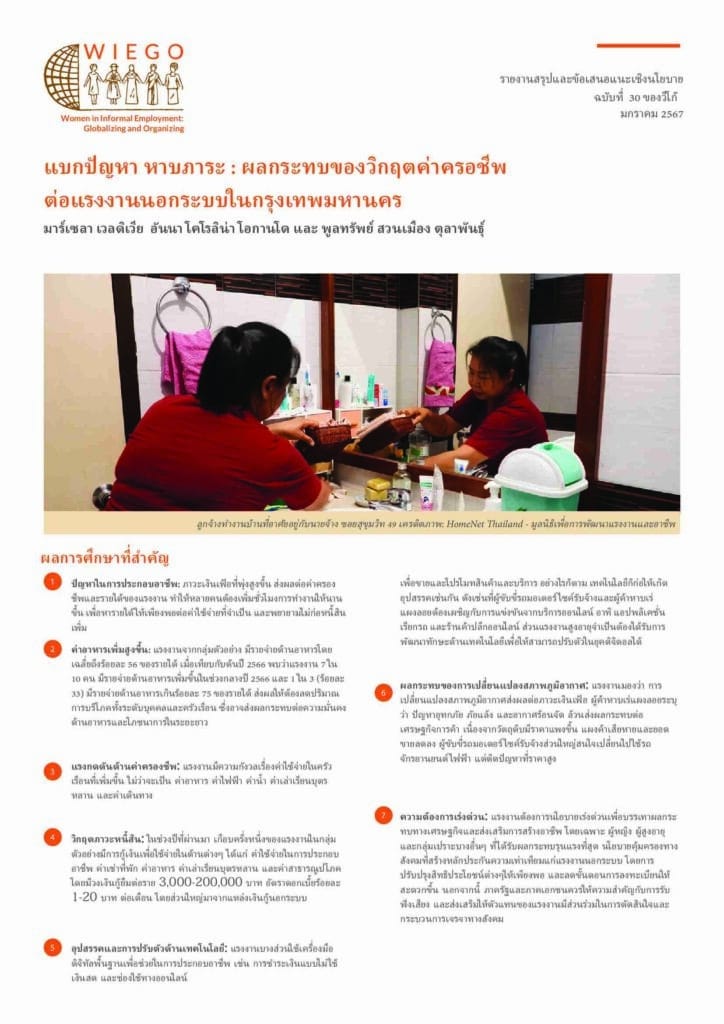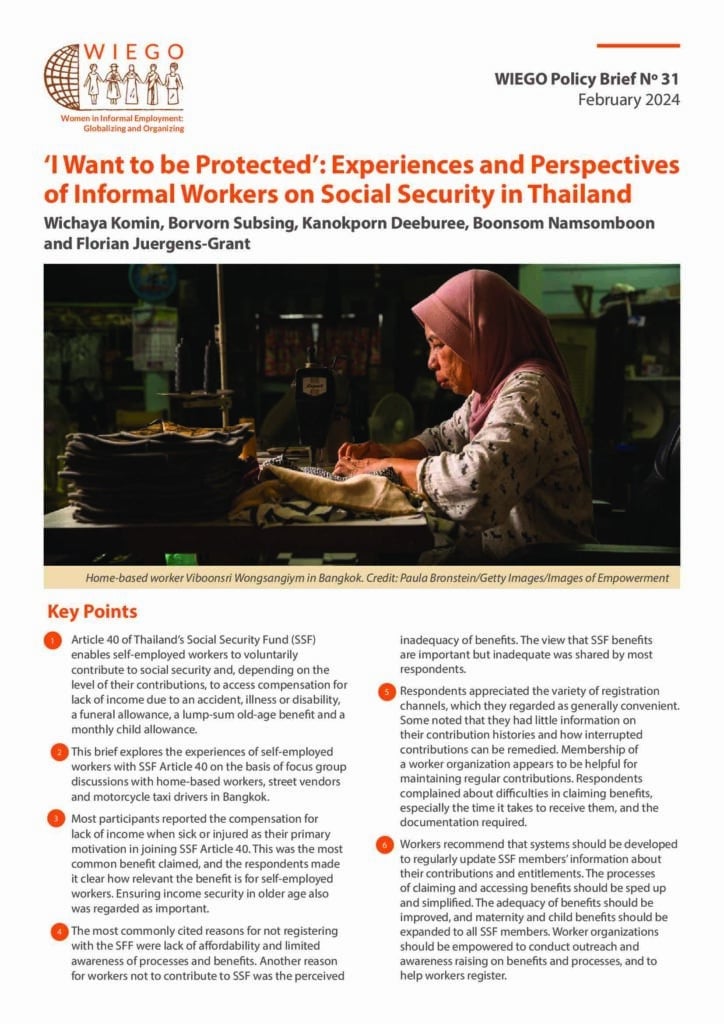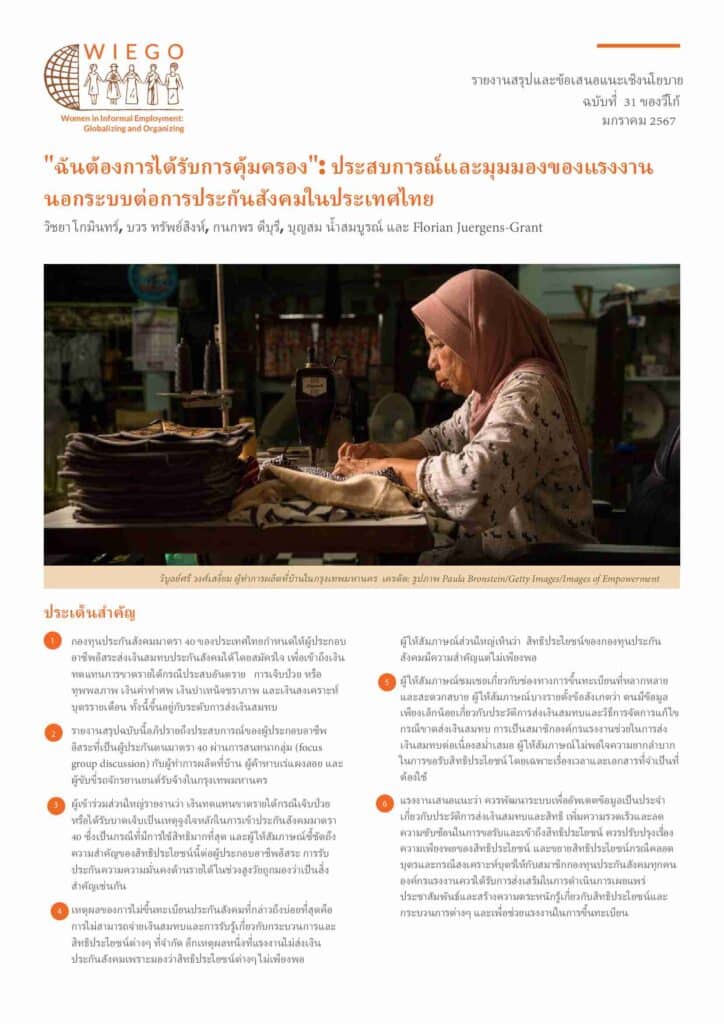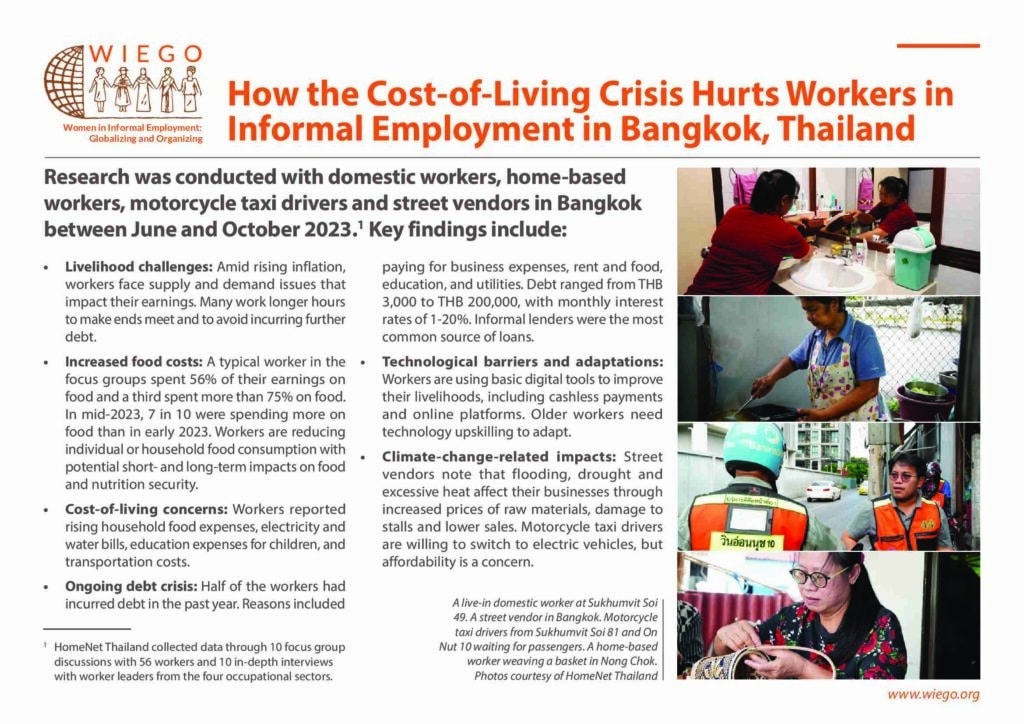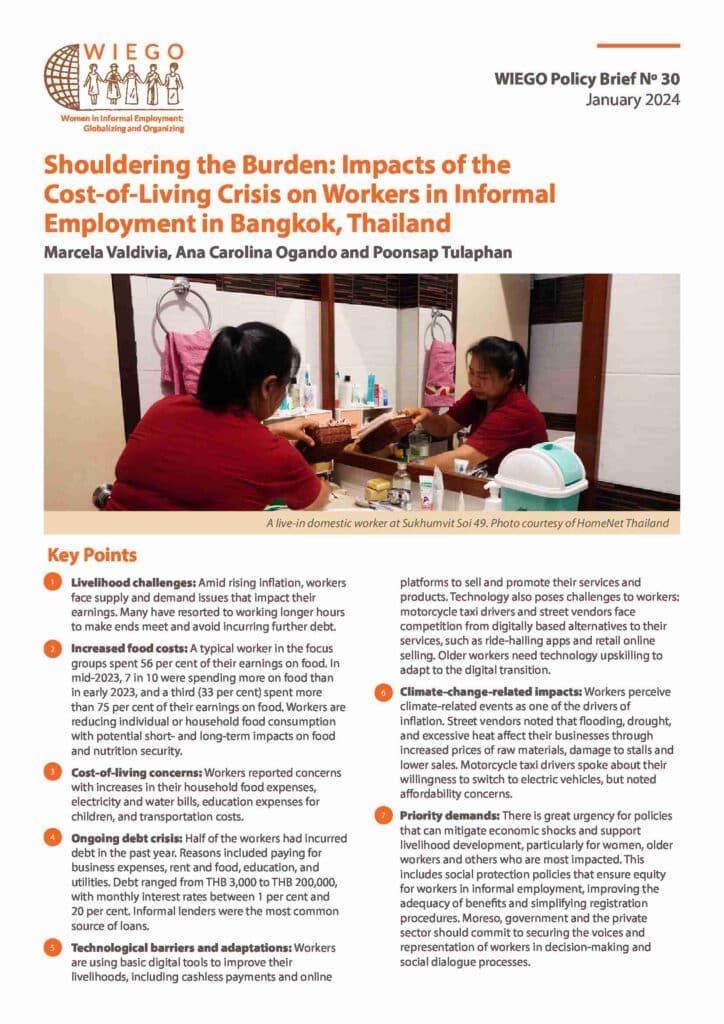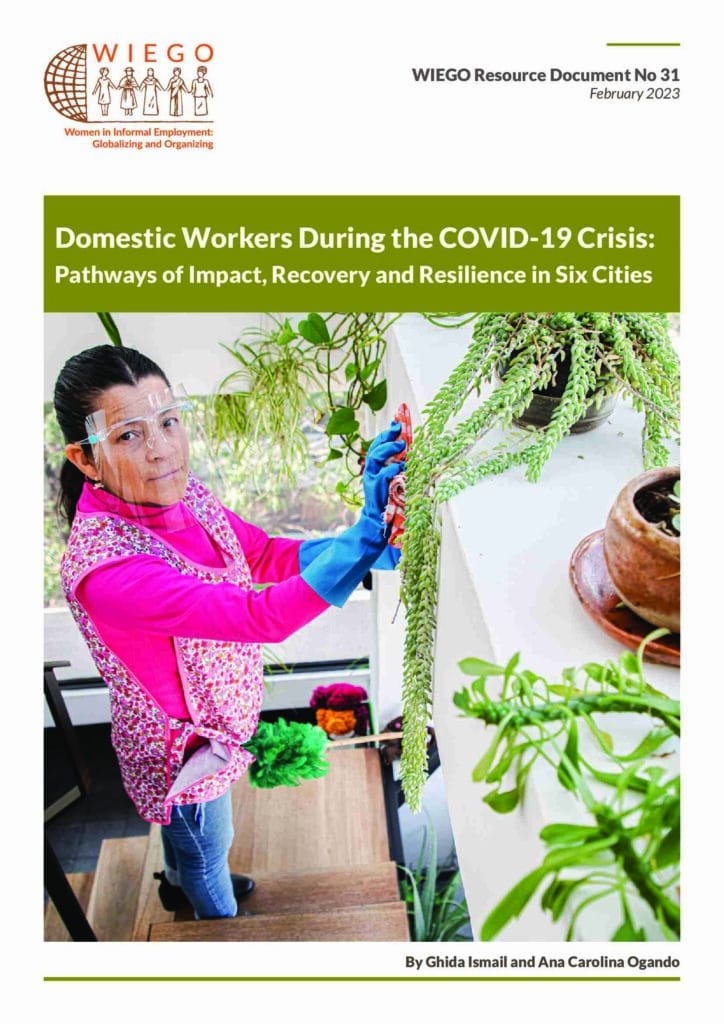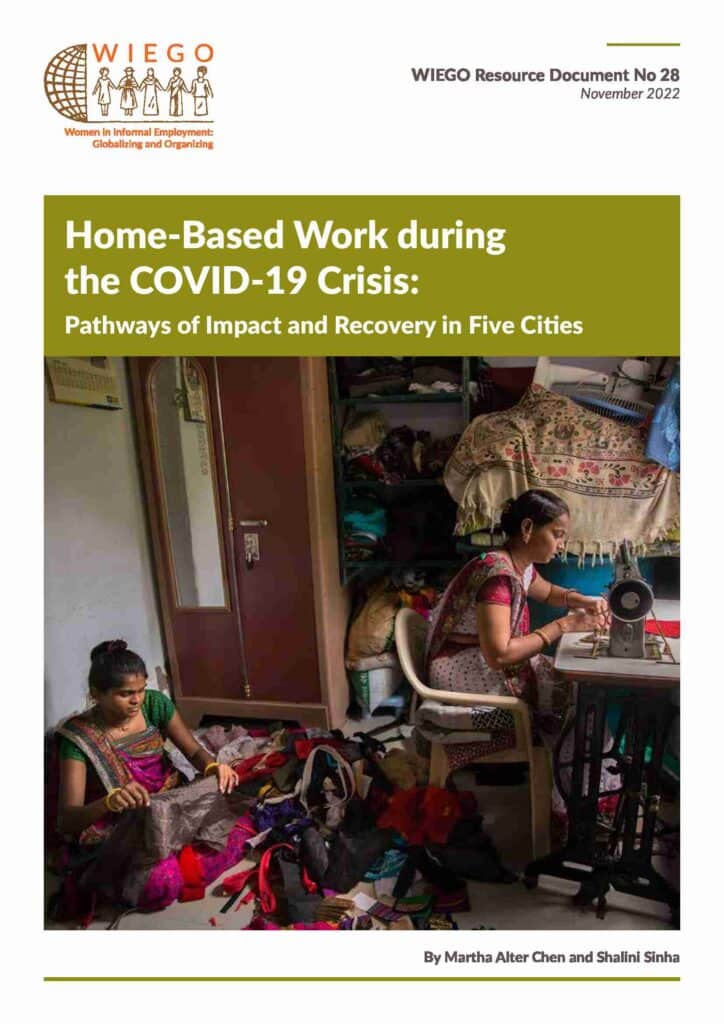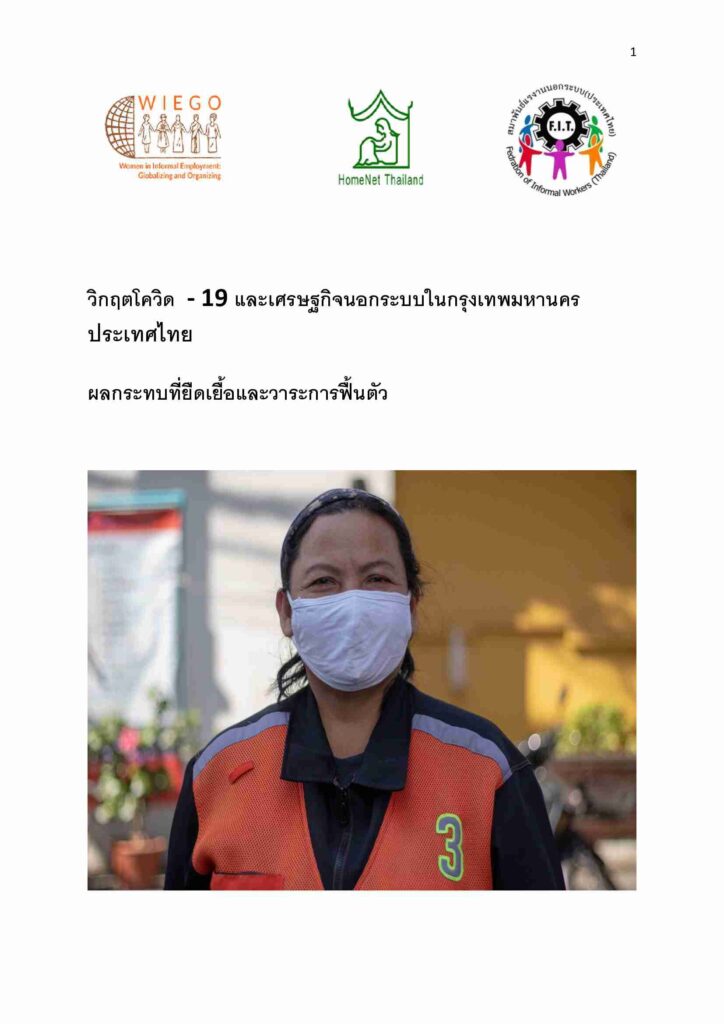WIEGO has long supported the work of HomeNet Thailand and the Federation of Informal Workers of Thailand. We collaborated on assessing the impacts of the cost-of-living crisis on workers in informal employment in Bangkok, and before that the impacts of the COVID-19 crisis. At the regional level, WIEGO partners with HomeNet Thailand on social protection advocacy.
Bangkok
About Our Work in Bangkok
Goals What Are We Working to Achieve?
-
WIEGO collaborates with HomeNet Thailand to conduct research that provides insights into the state of the urban informal economy, and the impacts of crises on workers in informal employment. Among these studies are the impacts of the cost-of-living crisis and of COVID-19, and the Informal Economy Monitoring Study.
-
Securing expanded access to social protection for workers in informal employment is a pillar of HomeNet Thailand’s work. WIEGO supports this work through research – including studies to assess workers’ experiences under existing social security policy, and to better understand informality in old age in Thailand (in partnership with the Thai Gerontology Research and Development Institute). WIEGO also supports HomeNet Southeast Asia and HomeNet Thailand’s collective action on influencing social protection policies at the regional level, including at the ASEAN and the United Nations.
-
From 2016-2019, WIEGO provided direct support to HomeNet Thailand and the Network of Thai Street Vendors for Sustainable Development in mobilizing against a historic evictions campaign, branded as “return the footpath to pedestrians”. WIEGO, HomeNet Thailand and the vendors’ network commissioned research demonstrating street vendors’ contributions to local economic development to develop a counter-campaign on social media, stage actions and engage officials on alternatives.
.jpg) Featured Post
Featured PostBangkok’s renowned street vendors march against evictions – and rally widespread support
By Chidchanok Samantrakul and Sarah Orleans Reed After relentless evictions against their livelihoods, on 4th September 2018, Bangkok street vendors marched on the government house to demand a halt to these actions. The march was led...
Read More Play Video
Play Video
Wishing for Coexistence, Not Eviction: Life after the Street Vending Ban
Since 2014, the Bangkok Metropolitan Authority (BMA) has evicted 20,000 vendors from 48 locations, as part of its "Return the Footpath to Pedestrians" policy. Three vendors discuss life before and after the ban. SHOW MORE for additional info on impacts and inclusive alternatives.
Featured: Impacts of Cost-of-living on Informal Workers in Bangkok
How We Work
-
Research
We coordinate and support action research, statistical and budget analysis, and good-practice documentation to ensure workers have a strong evidence base to support their advocacy.
-
Policy Advocacy
We support HomeNet Thailand to develop proposals for policy change, drawing on both lived experiences and technical knowledge of their sectors. We support them in advocacy efforts to engage government and other stakeholders on these proposals and fight for reforms.
The Latest Statistics on Work in the Informal Economy in Bangkok
WIEGO does groundbreaking statistical work to help policymakers and workers understand the size and characteristics of the informal economy in cities across the world.
Access the latest statistics-
28.4%
of Bangkok’s total employment is informal employment
-
42.1%
of total employment in urban Thailand is informal employment
